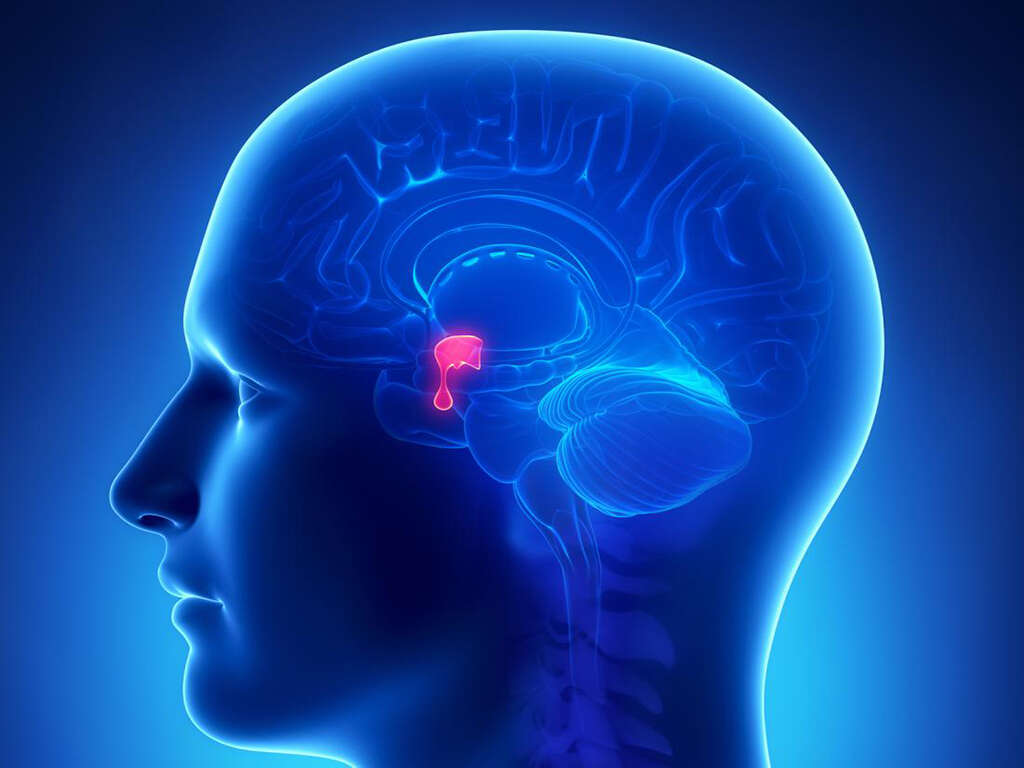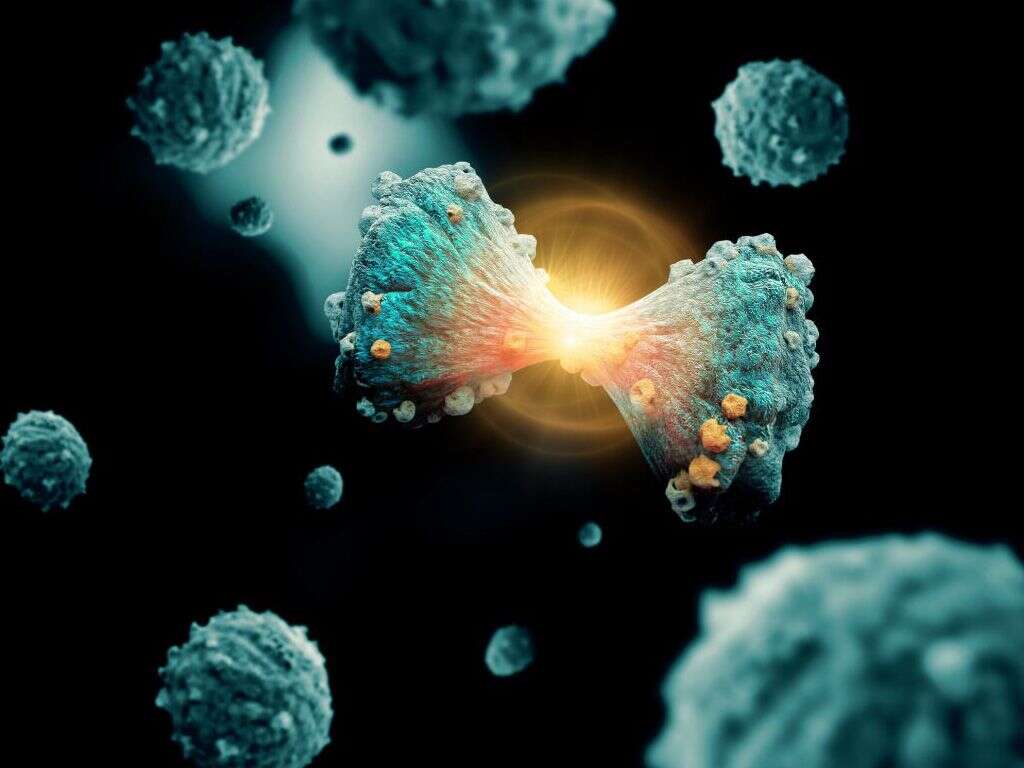10 Symptoms of a Pituitary Tumor
Pituitary tumors or pituitary adenomas refer to a mass or growth in the pituitary gland. They can be divided into carcinomas, invasive adenoma, and benign adenomas. Approximately 10 to 25 percent of all intracranial neoplasms are pituitary adenomas. It also has been estimated that the prevalence of pituitary tumors among the general population is about 17 percent. Pituitary adenomas that are non-secreting and non-invasive are considered to be benign. Tumors that are more than 10 millimeters or 0.39 inches in size are by definition, macroadenomas while those smaller than 10 millimeters are microadenomas.
Most pituitary microadenomas remain undiagnosed and is often found as an incidental finding or often referred to as incidentalomas. While common (as many as 1 in every 6 individuals in the general population), pituitary tumors that are clinically active requiring surgery are rare, only affecting 1 in 1000 individuals of the general population. The risk factors of pituitary tumors include multiple endocrine neoplasia, Carney complex, familial isolated pituitary adenoma, and genetic causes. The pituitary gland is often referred as the “master gland” as it controls most of the endocrine functions in the body through the secretion of various hormones.
The diagnosis of a pituitary tumor can be suspected based on the constellation of symptoms. To confirm, tests such as radiographic imaging of the pituitary gland and testing of hormone levels can be done. Treatment of a pituitary tumor depends on the type of tumor and size. It may involve the use of medications and surgery.

Symptom #1: Unexpected Lactation
Unexpected or abnormal lactation can be referred to as galactorrhea which is most commonly caused by hyperprolactinemia. Hyperprolactinemia occurs when the levels of the hormone prolactin is higher than normal. It can be caused by medication, pituitary tumors, or other sellar and suprasellar lesions.
Other less common causes include renal insufficiency, hypothyroidism, nipple stimulation, and pregnancy. Patients with prolactinomas (prolactin producing pituitary tumors) can be treated with dopamine agonisis such as cabergoline or bromocriptine.

Symptom #2: Visual Defects
Pituitary adenomas can cause visual defects if they compress the optic chiasm. Patients with peripheral vision loss are often unaware. Physicians should direct questions towards functional changes like a higher rate of car accidents as there is decreased awareness of approaching cars in the periphery.
Patients who experience bitemporal hemianopsia will also present with loss of depth perception where they experience difficulties with activities such as threading needles, working with precision tools, and cutting fingernails. Other ocular symptoms that may be present include diplopia (double vision) and nystagmus.

Symptom #3: Headaches
Headaches can be defined as pain that is felt anywhere in the region of the head or neck. They are a very common symptom that can be seen in various conditions such as dehydration, hypoglycemia, fever, viral infection, stress, overworking, and inadequate sleep. They are also a common complaint among patients with pituitary tumors.
This can be due to the invasion of the tumor into the cavernous sinus containing divisions of the trigeminal nerve and involvement of the dural lining of the diaphragma sella. It can also be due to increased intracranial pressure because of the pituitary tumor. It may also be a side effect after treatment of pituitary tumors using medications or surgery.

Symptom #4: Vomiting
Vomiting or puking refers to the involuntary expulsion of stomach contents through the mouth and nose. It is a common symptom that can be observed in food poisoning, gastroenteritis, and motion sickness. It can also occur if there is increased intracranial pressure which may occur due to a pituitary tumor.
Other associated symptoms of increased intracranial pressure include altered level of consciousness, back pain, ocular palsies, papilledema, and headache. Vomiting occurs in increased intracranial pressure due to the pressure on the area postrema, a medullary structure in the brain that controls vomiting.

Symptom #5: Symptoms of Gigantism
Gigantism is a condition caused by the overproduction of growth hormone. This can occur when there is a pituitary tumor that leads to the production of excessive levels of growth hormone in those who are still growing.
This means that it occurs before the fusion of the growth plate. Growth plate fusion usually begins after puberty. Individuals affected by gigantism have excessive height and growth that is significantly above average. This results in individuals reaching 7 to 9 feet (2.1 to 2.7 meters) in height.

Symptom #6: Prognathism
Prognathism refers to the protrusion of the mandible or maxilla beyond a predetermined imaginary line in the coronal plane of the skull. Prognathism can result in malocclusion where there is misalignment of the two dental arches as the jaws close.
Prognathism occurs if the pituitary tumor leads to acromegaly where there is the production of growth hormones in those whose growth plate has fused. Other associated symptoms of acromegaly include frontal bossing, macroglossia, increased size of hands and feet.

Symptom #7: Amenorrhea
Amenorrhea refers to the absence of menstrual cycles. In women with amenorrhea. It can be due to the low levels of female reproductive hormones that are insufficient to stimulate menstruation. It can be seen in malnutrition, extreme exercise, and anorexia nervosa.
It can also be a symptom of a pituitary tumor if it is a prolactinoma, which will lead to the production of hormones that directly disrupts the normal menstrual cycle. Amenorrhea can also occur in pituitary tumors that cause acromegaly and Cushing’s disease.

Symptom #8: Erectile Dysfunction
Erectile dysfunction or impotence refers to the inability to maintain or develop a penile erection during sexual activity. It can be due to many reasons such as organic causes (cardiovascular disease, neurological issues, hormonal insufficiencies) and psychological reasons.
In Cushing’s disease where the presence of a pituitary tumor leads to the excessive secretion of adrenocorticotropic hormone, it then results in the excessive production of cortisol that can cause erectile dysfunction, hirsutism (in women), weight gain, fatigue, and truncal obesity.

Symptom #9: Weight Loss and Tachycardia
Since the pituitary gland controls the production and secretion of many hormones, one of the hormones is the thyroid stimulating hormone. This means that the presence of a thyrotrophic pituitary adenoma may occasionally lead to symptoms of hyperthyroidism such as weight loss and tachycardia.
Weight loss occurs when there is a reduction in body mass while tachycardia refers to an accelerated heart beat above 100 beats per minute. However, the incidence of thyrotrophic pituitary adenomas are rare.

Symptom #10: Hypertension and Hyperglycemia
Hypertension is defined as the abnormal increase of blood pressure while hyperglycemia is the elevation of blood sugar beyond the normal limits. Both hypertension and hyperglycemia are symptoms that can be seen in pituitary tumor especially if the tumor leads to the secretion of excessive adrenocorticotropic hormone resulting in excessive production of cortisol.
This leads to the development of Cushing’s disease which also causes issues such as abdominal striations, infections, cognitive difficulties, truncal obesity, moon face, and weight gain.












